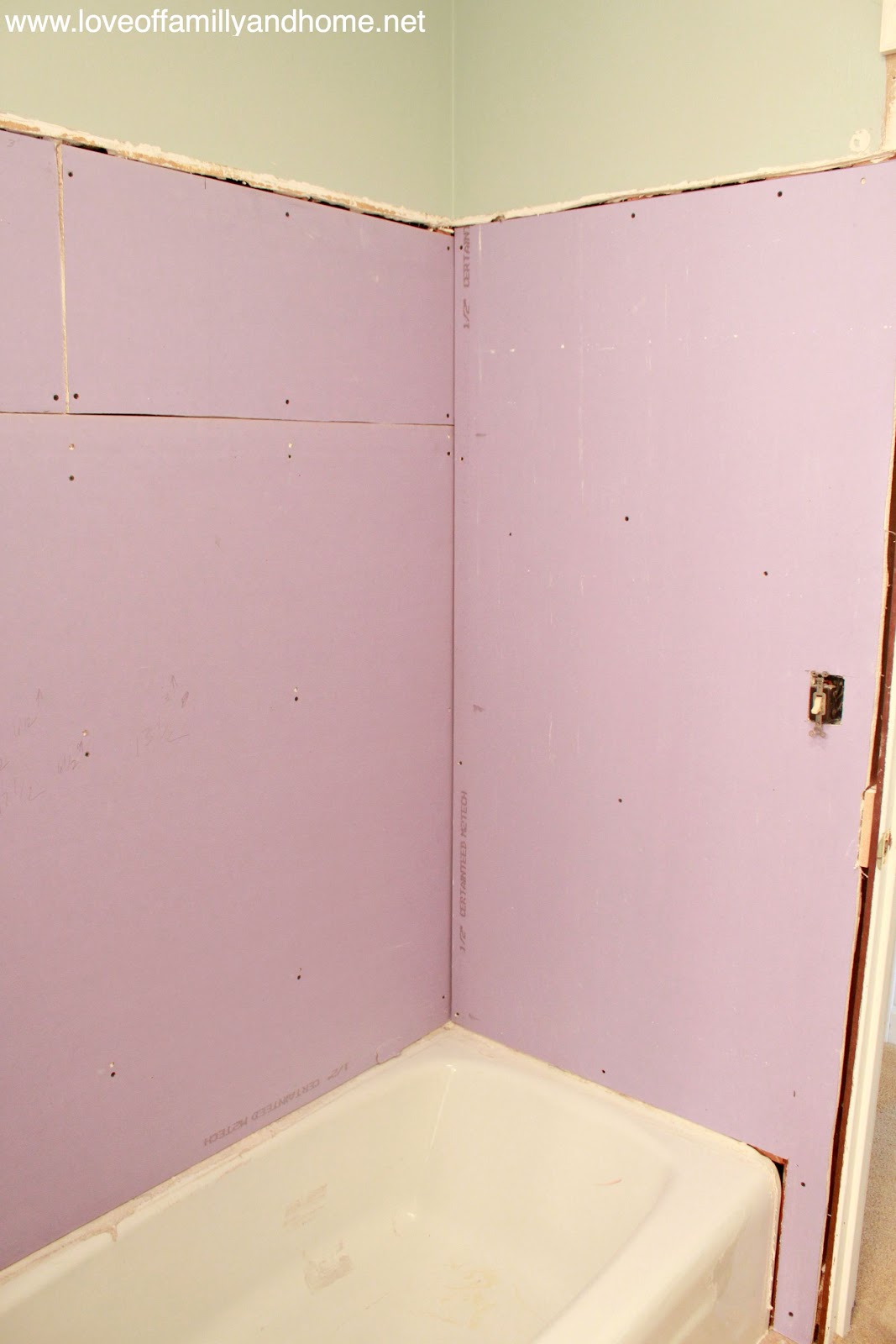Tiling Time Warp: Installing Tub Surrounds Directly Over Existing Tile
Your bathroom: a sanctuary of relaxation, a temple of hygiene… or maybe it's more like a time capsule from the disco era, complete with avocado-green tile. You yearn for a modern, sleek aesthetic, but the thought of a full-blown bathroom remodel makes your wallet whimper. Fear not, intrepid renovator! Installing a new tub surround directly over your existing tile might be the solution you've been searching for.
This method, often whispered in hushed tones by contractors and DIY gurus, can save you time, money, and the dust-cloud apocalypse of a full tile demolition. But is it the right choice for your bathroom odyssey?
For decades, the gospel of bathroom renovation preached a singular truth: thou shalt remove the old before welcoming the new. Tiling over tile was sacrilege, a recipe for disaster, an invitation for uneven surfaces and eventual adhesive failure. However, as technology advanced, so did the options for tenacious adhesives and moisture-resistant materials. Enter the era of the direct-to-tile installation.
This technique isn't without its caveats. The success of a tile-over-tile installation hinges on several factors, primarily the condition of the existing tile. Is it securely bonded, free of cracks and loose grout? Are there any signs of moisture damage or mold lurking beneath the surface? Answering these questions honestly will determine if your bathroom is a good candidate for this time-saving method.
Before diving headfirst into the world of adhesives and caulk, let's clarify what we mean by "tub surround." We're not just talking about individual tiles painstakingly applied one by one. Modern tub surrounds often come in kits, featuring large, pre-fabricated panels made from materials like acrylic, fiberglass, or composite materials. These kits simplify the installation process and offer a cohesive, streamlined look.
Advantages and Disadvantages of Installing Tub Surround Over Tile
Like any home improvement endeavor, installing a tub surround over existing tile comes with its own set of pros and cons. Weighing these factors carefully will help you make an informed decision.
| Advantages | Disadvantages |
|---|---|
| Time-saving installation | Potential for uneven surfaces if the existing tile is not perfectly flat |
| Cost-effective compared to full tile removal | May slightly reduce the overall dimensions of your shower or tub area |
| Reduces dust and debris associated with demolition | Requires careful preparation and the use of appropriate adhesives and sealants |
Best Practices for Installing a Tub Surround Over Tile
If you've determined that your bathroom is ready for a tile-over-tile transformation, follow these best practices to ensure a successful and long-lasting installation:
- Thorough Surface Preparation: Clean the existing tile meticulously, removing any soap scum, mildew, or loose debris. Repair any cracks or chips in the tile or grout, ensuring a smooth and level surface for adhesion.
- Choose the Right Adhesive: Opt for a high-quality adhesive specifically designed for bonding to tile surfaces. Look for products labeled as "modified thinset mortar" or "tile adhesive mastic."
- Waterproof the Seams: Apply a waterproof sealant around the perimeter of the tub surround and along any seams or joints to prevent water infiltration.
- Proper Ventilation: Ensure adequate ventilation during and after installation to allow the adhesives and sealants to cure properly and prevent moisture buildup.
- Follow Manufacturer's Instructions: Each tub surround kit may have specific installation instructions. Carefully review and follow these instructions for the best results.
FAQs About Installing Tub Surrounds Over Tile
Still have questions? We've got answers:
Can I install any type of tub surround over tile?
While many tub surround kits are suitable for tile-over-tile installation, it's always best to check the manufacturer's recommendations. Some materials or designs may require a different installation method.
How long will a tub surround installed over tile last?
With proper installation and maintenance, a tub surround installed over tile can last for many years. The lifespan will vary depending on the quality of the materials, the installation, and the level of wear and tear.
What are some common challenges when installing a tub surround over tile?
Ensuring a level and even surface is crucial for a successful installation. Uneven tiles or grout lines can create problems. Additionally, using the correct adhesive and waterproofing techniques is essential to prevent moisture issues.
Can I install a tile-over-tile tub surround myself, or should I hire a professional?
While this project is within the realm of a skilled DIYer, it's important to assess your comfort level and experience. If you're unsure about any aspect of the installation, it's always best to consult with a qualified professional.
What are some alternatives to installing a tub surround over tile?
If your existing tile is in poor condition or you prefer a different aesthetic, other options include completely removing the old tile and starting fresh, or exploring alternative wall coverings like waterproof panels or paint specifically designed for bathroom use.
Embarking on a bathroom renovation can be an exciting endeavor, and with the right information and planning, even a seemingly daunting task like installing a tub surround over existing tile can be within reach. Remember to carefully assess your bathroom's unique needs, follow best practices, and don't hesitate to seek professional guidance when needed. With a little effort, you can transform your bathroom from time capsule to tranquil oasis, one stylish panel at a time.
The enduring allure of 1980s fashion for women
Green aesthetic wallpapers for pc elevate your desktop
Decoding resume font sizes is 9pt too small






.jpg)







